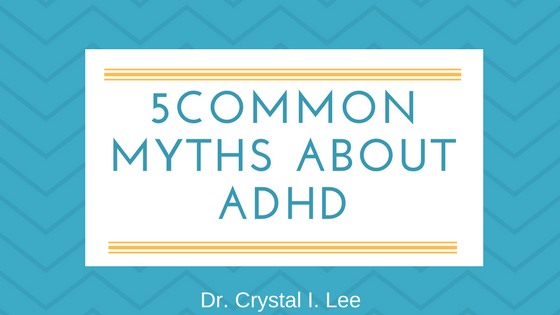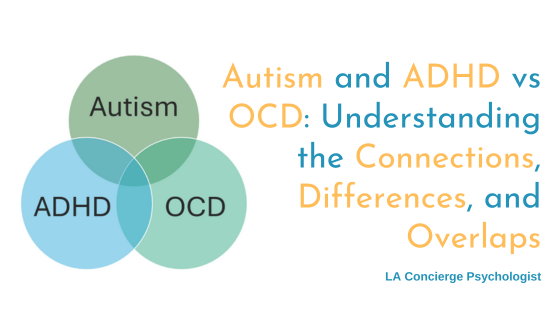
Over the years, I’ve worked with numerous children and adults with ADHD. I’ve noticed that parents and clients alike come to me with misinformation. There are so many myths about ADHD, and I’d like to bust five of the common ones I’ve heard.
1. People with ADHD have difficulties with executive functioning, regardless of what they’re doing.
Some research seems to indicate that executive functioning impairments may be context dependent, and other research show that variability in performance across situations is actually part of the ADHD diagnosis. This makes sense because research has shown that people with ADHD are highly sensitive to rewards—so intrinsically motivating tasks, which are by nature are very rewarding, would be easier to accomplish.
2. If people with ADHD really wanted to focus, they could make themselves do it.
Dr. Thomas Brown at Yale University proposes that executive functions are unconscious; they’re not something you can will into happening. Individuals with ADHD have abnormalities in their reward system, which makes it difficult for them to generate and maintain motivation for tasks that don’t provide immediate and continual reinforcement.
3. People can outgrow their ADHD.
It’s true that, for some people, symptoms of hyperactivity and impulsivity decrease as they age. However, this is not simply because they are “outgrowing” their ADHD. This is the result of brain maturation, learning compensatory skills, and/or changes in environmental demands.
4. Smart people can’t have ADHD.
ADHD doesn’t care if you have a below-average, average, or above-average IQ; it’s an equal opportunity disrupter. In fact, many individuals with above-average IQs obtain ADHD diagnoses later in life because teachers and parents wrongly assume that if the child is bright, they can’t have ADHD.
5. ADHD is just a prefrontal cortex problem.
The prefrontal cortex certainly plays a large part in ADHD, but executive functioning are complex and involve many areas of the brain. Research has shown brain differences in the parietal lobe, cerebellum, basal ganglia, and white matter tracts that connect various areas of the brain.
Do you need help managing your ADHD? Send us a message or book a free 20 minute consultation call with Dr. Barajas or Dr. Goldman to see how we can help.
Read more about my neurodivergent-affirmative work for more on how I can help you manage your adult ADHD




